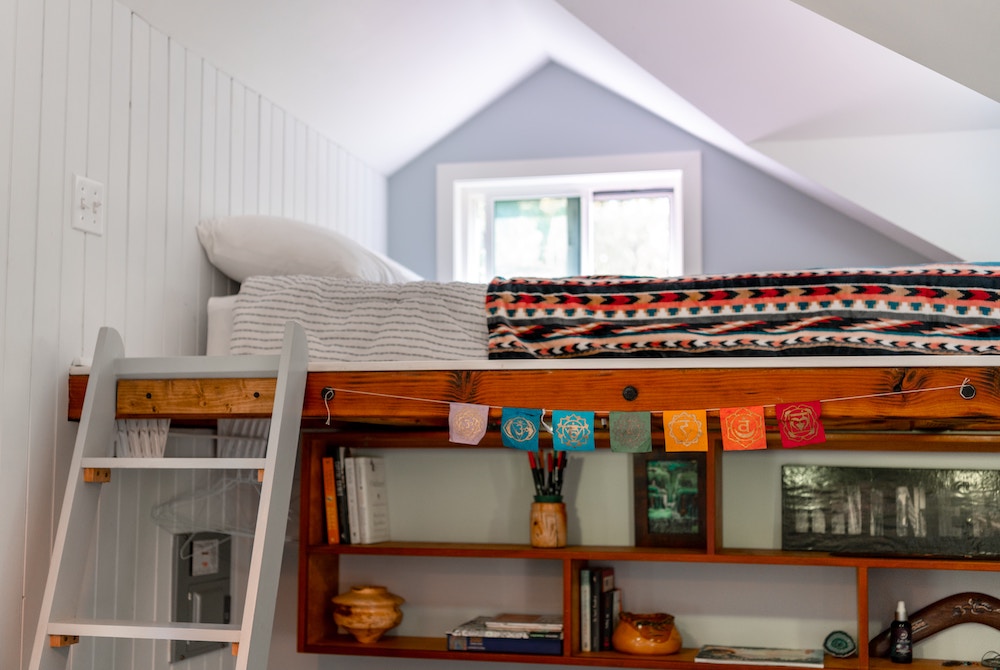Step into the era of downsizing and minimalist living, where the very notion of home has evolved beyond conventional norms. Tiny homes, with their efficient designs and minimalist aesthetics, have captivated the minds of those yearning for respite from the materialistic chaos of modern life. In this blog, we will delve into the economic considerations of embracing a lifestyle that transcends mere square footage, exploring the intersection of finances and the tiny home movement.
Related Article: Money and Happiness: Unraveling The Complex Relationship
The Allure of Tiny Living
Before we delve into the financial considerations, let's take a moment to explore why tiny living has become so appealing. Tiny homes, typically ranging from 100 to 400 square feet, provide a compact and functional living space. They challenge the conventional belief that bigger is always better and instead encourage individuals and families to prioritize experiences over material possessions.

Tip: Reflect on what draws you to tiny living; is it the simplicity, sustainability, or the desire for a debt-free lifestyle?
Understanding the Upfront Costs
When embarking on the path to tiny home living, one of the first things to consider is the upfront cost. While the idea of a smaller mortgage or construction budget may be appealing, it's important to take into account all expenses. These include the cost of land, permits, construction materials, and any additional features you desire.
To avoid any unexpected financial hiccups, it is crucial to create a detailed budget. Make sure to factor in all conceivable costs, from the foundation to the last coat of paint. This upfront investment will set the stage for your tiny home journey.
Tip: Consult with experts, gather quotes, and build a comprehensive budget that accounts for every aspect of the construction process.
Long-Term Benefits and Savings
Looking beyond the initial investment, tiny home living offers significant financial benefits in the long run. These compact dwellings are known for their efficiency, resulting in lower utility bills, reduced maintenance costs, and even potentially lower property taxes. The very essence of tiny homes promotes a conscious and minimalist lifestyle, leading to ongoing savings.
Consider the decreased energy consumption, the manageable size that requires less upkeep, and the possibility of substantial property tax reductions. While the upfront investment may seem significant, the long-term savings make tiny living a financially wise choice.
Tip: Evaluate the ongoing savings in comparison to traditional homeownership and assess how they align with your financial goals.
Resale Value and Market Trends
For those considering tiny home living, the resale value of your miniature abode may be a common concern. While the real estate market can be unpredictable, it's important to recognize that the uniqueness and growing popularity of tiny homes could potentially lead to appreciation over time. The increasing demand for smaller, more sustainable living spaces suggests a positive impact on the resale value of tiny homes.
To gain a better understanding of the potential appreciation of your tiny home's value, it's essential to conduct thorough research on real estate trends in your area. Look for emerging communities or a growing interest in sustainable living, as these market dynamics can provide valuable insights.
Tip: Stay informed about real estate trends and explore opportunities to capitalize on the increasing demand for tiny homes.
Financial Freedom and Flexibility
In addition to the financial benefits, investing in a tiny home can bring a sense of financial freedom. By reducing your monthly expenses, you'll have extra money to spend on things like travel, personal growth, or even retiring early. Tiny home living isn't just about downsizing; it's a path towards a more flexible and fulfilling lifestyle.
Think about how tiny living can align with your financial goals and provide the freedom and flexibility you desire. Would you like to explore new hobbies, further your education, or have the financial freedom to take a break from your career? Tiny living can serve as a stepping stone towards achieving these aspirations.

Tip: Create a financial roadmap that incorporates your goals and aspirations, factoring in the potential savings from tiny living.
Challenges and Considerations
It's important to keep in mind the challenges and considerations that come with tiny living, despite its compelling financial benefits. Factors like zoning regulations, land availability, and the adjustment to a smaller living space require careful consideration. Additionally, it's important to be aware of the potential challenges of reselling a tiny home in certain markets.
Acknowledging these challenges doesn't negate the financial advantages of tiny living, but it allows for a realistic assessment of what the lifestyle entails. Take the time to research local regulations, explore land options, and mentally prepare yourself for the transition to a smaller space.
Tip: Balance the potential challenges with the anticipated benefits, and consider them as part of the holistic decision-making process.
Long Story Short
The decision to invest in a tiny home is a significant one that stretches beyond financial considerations. By carefully evaluating the upfront costs in comparison to the potential long-term benefits, you can determine whether tiny home living aligns with your financial goals and lifestyle aspirations.
Tiny living is not a one-size-fits-all solution, and its value as an investment is deeply personal. It encompasses more than just downsizing; it involves embracing a life that is less cluttered and more purposeful. As you navigate the financial aspects of tiny home living, keep in mind that the journey is just as important as the destination.
So, is tiny home living a worthwhile investment? The answer lies in your financial vision and your commitment to adopting a lifestyle that prioritizes freedom, sustainability, and intentional living.
What do fish use as currency to purchase anything?
Sand Dollars! Sign up to receive important information on banking, financial tips, and jokes like this directly to your inbox






%20(1).png?width=840&height=294&name=Untitled%20(1000%20%C3%97%20350%20px)%20(1).png)



